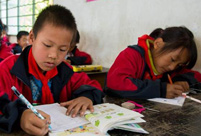 Geng Xuan crowned at 9th China Super Model Contest
Geng Xuan crowned at 9th China Super Model Contest
 Top 10 billionaires in the liquor industry
Top 10 billionaires in the liquor industry
 Backstage at China Fashion Week
Backstage at China Fashion Week
 Ballerinas anywhere but onstage
Ballerinas anywhere but onstage
 Top 10 safest airlines in the world
Top 10 safest airlines in the world
 Top 10 most popular instant messaging apps in the world
Top 10 most popular instant messaging apps in the world
 Inspiring shadow images of Chinese army
Inspiring shadow images of Chinese army
 Models shine Xinjiang auto show
Models shine Xinjiang auto show
 From laid-off worker to int'l referee in bodybuilding
From laid-off worker to int'l referee in bodybuilding
 Selected photos of 'two sessions'
Selected photos of 'two sessions'
In spite of China's opposition, the Philippines filed a formal plea to an international tribunal on the South China Sea dispute last Sunday. However, this legal move is doomed to failure.
Firstly, the Philippine government is attempting to circumvent the limitations of international law. The Philippine government knows perfectly well that without China's consent, the International Tribunal for the Law of the Sea (ITLOS), organized under the UN Convention on the Law of the Sea (UNCLOS), has no right to hear the sovereignty dispute over islands and reefs between China and the Philippines. China has already made a statement in accordance with the Article 298 of the UNCLOS back in 2006, pointing out that such disputes as ocean boundaries and historical rights are not subject to the UNCLOS compulsory dispute settlement mechanism.
The Philippine government has therefore racked its brains to put together its 4000-word plea. It makes no direct request for the arbitration tribunal to give a ruling on the ownership of the islands and reefs and waters of the South China Sea, but attempts to "demonstrate" that China's claim to such disputes does not meet the provisions of the Convention, so as to undermine the legal basis for China's claim on the South China Sea.
Secondly, the Philippine government is attempting to close the door to bilateral dialogue. According to Article 286 of UNCLOS, the prerequisite for submitting a maritime dispute to international arbitration tribunal is that the dispute remains unsolved after bilateral dialogue. After the Philippines provoked the Huangyan Island issue, it repeatedly emphasized its willingness to resolve the South China Sea dispute through political, diplomatic and legal channels. But it appears that the "legal" channel is a resort to international arbitration. The Philippines has no genuine intent to solve the dispute through political and diplomatic channels; on the contrary, it has snubbed China's positive responses.
In fact, China has made two proposals - to establish a regular consultation mechanism over maritime issues and to restart the confidence-building measures mechanism between the two countries - in March 2010 and January 2012 respectively. The two countries also have a history of earlier consensus, and have agreed to the Declaration on the Conduct of Parties in the South China Sea.
Thirdly, the Philippine government is living in misguided hope. The Philippines must be aware that it has no prospects of winning its case through international arbitration and it knows well that China will neither accept nor participate in the process over the South China Sea dispute. Its move is intended to create an impression that China has refused to accept the jurisdiction of the international rules and international law, in order to elicit international sympathy. The Philippines is hoping to entice international public opinion to take its side and put pressure on China. The whole process of internationalization of the South China Sea issue is a charade.
The Philippines is confident that it will rally support to its cause. It has already recruited a cheerleader in the person of the U.S. Over the past few years, the U.S. has given constant support to the Philippines in a variety of ways. But both the Philippines and the U.S. must understand that the direct cause of the dispute is the Philippines' illegal occupation of some Chinese islets.
By pushing for international arbitration, the Philippines are attempting to disguise the illegal nature of their occupation of Chinese territory. This legal ploy, though carefully devised, is doomed to failure.
For the Philippines, a pathway of dialogue and cooperation is the only sensible one.
The article is edited and translated from《菲律宾强推仲裁注定徒劳》, source: People's Daily Overseas Edition, author: Jia Xiudong (Senior Researcher at the China Institute of International Studies)
 Wonderful moment of China's airborne forces
Wonderful moment of China's airborne forces Bai Baihe shoots for fashion magazine
Bai Baihe shoots for fashion magazine Red terraced fields in Dongchuan of Yunnan
Red terraced fields in Dongchuan of Yunnan Jiaju Tibetan Village
Jiaju Tibetan Village Spring dating
Spring dating Confucius institute at UC Davis
Confucius institute at UC Davis Little painted faces at temple fair
Little painted faces at temple fair Top 10 safest airlines in the world
Top 10 safest airlines in the world Foreign students at China-Myanmar border
Foreign students at China-Myanmar border Ballerinas anywhere but onstage
Ballerinas anywhere but onstage Most unusual taxis around the world
Most unusual taxis around the world Micro-expression at 'two sessions'
Micro-expression at 'two sessions' Bridge Worship Festival in Taijiang, SW China
Bridge Worship Festival in Taijiang, SW China Hollywood documentary brings Diaoyu Islands truth to new audience
Hollywood documentary brings Diaoyu Islands truth to new audience Miss HK and actresses shine at flower show
Miss HK and actresses shine at flower showDay|Week|Month